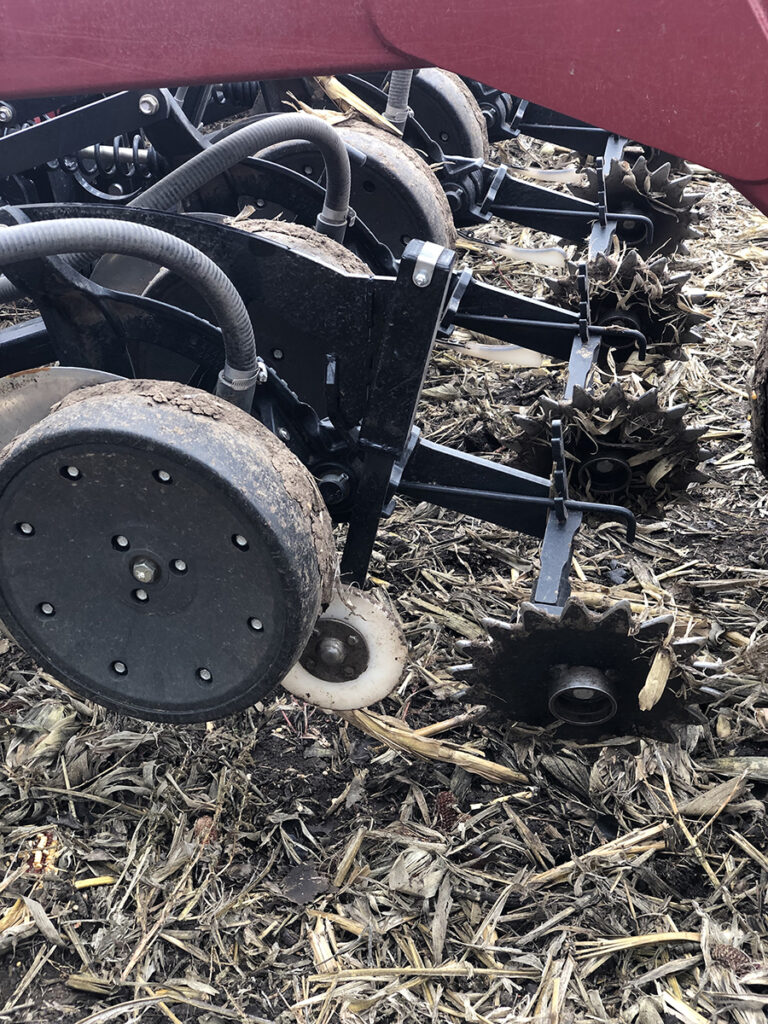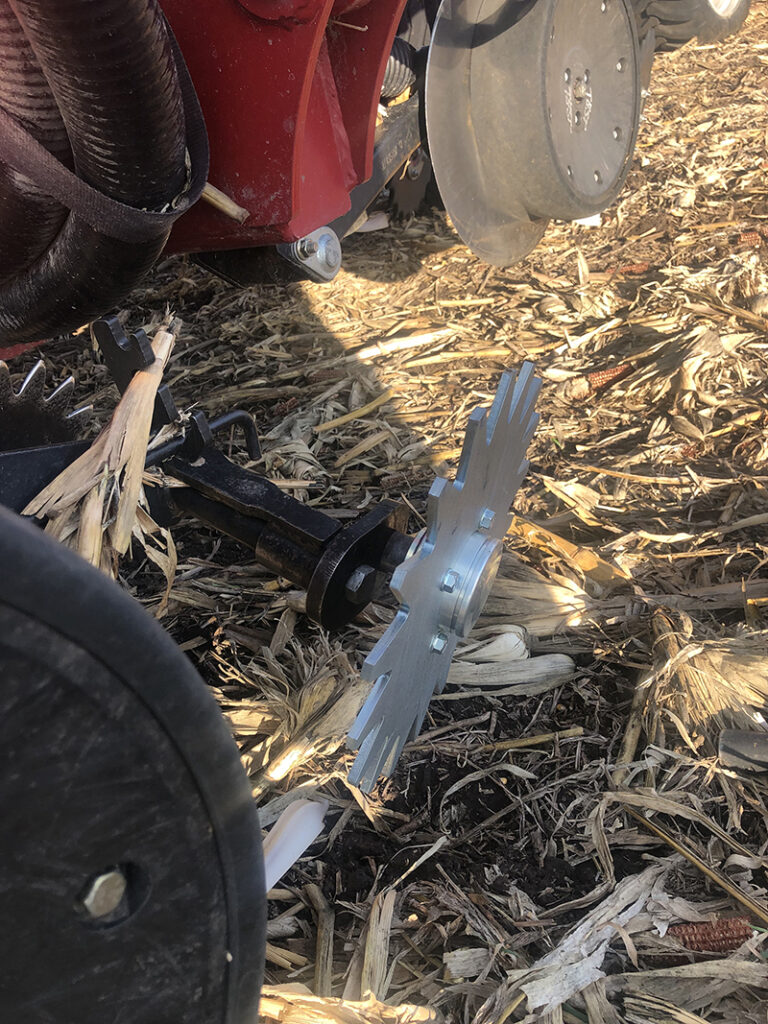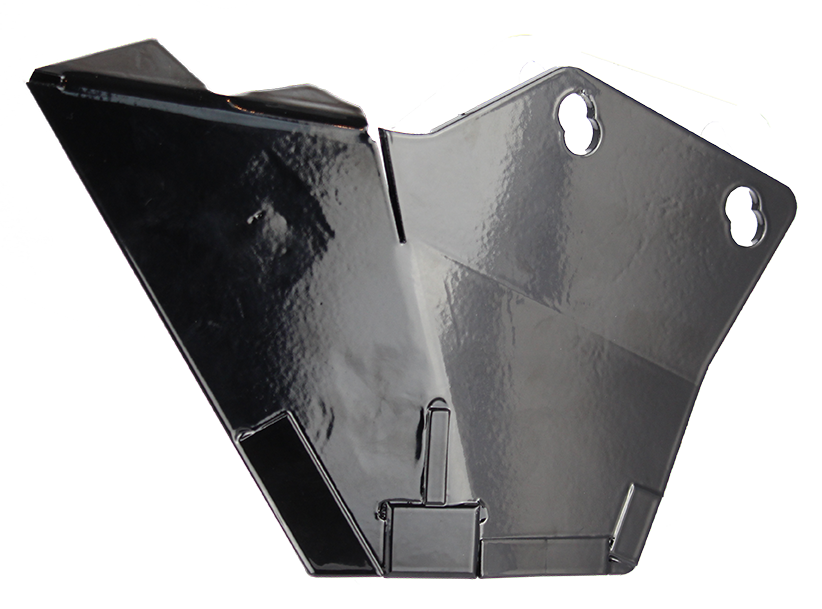by Ethan Begle
With the release of the P500 air seeders back in 2013, it appeared, looking at the opener design, that a lot of the downfalls of the JD single disc openers had been improved upon.
- The gauge wheel is positioned alongside the blade for depth accuracy.
- Seed boot shape, position, and forward-facing seed tube allow excellent seed placement.
- Blade runs at same 7° side angle as Deere, but blade runs straight up-down not tipped out.
- Parallel linkage to follow ground contour and keep downforce consistent in that seeding range.
Now, the drawbacks to this row unit come in after the seed is placed: There is no seed firming option, however, Exapta has offered a Keeton seed firmer and Mojo wire stiffener for years now. In addition to the Keeton, we offer a firming wheel option from Atom-Jet (pictured) that will be more durable, and install is simple. Firming the seed, especially in structured no-till soils and shallow planting depths of smaller seeds, offers much improved emergence rates. Don’t rely on the closing wheel to get the seed- to-soil contact necessary for emergence.
In addition to firming the seed, the OEM closing wheel left a lot to be desired. Case added the option to angle the packer wheel for improved closing; however, the smooth wheel itself is the larger issue. With our Thompson closing wheel kit, you not only receive a spoked wheel that will crumble the sidewall to ensure the furrow is closed; you get a new closing arm that will move the wheel back a few inches to allow room for a full-length Keeton, which allows the use of a fertilizer tube for in-furrow liquid options.
Also, from Atom-Jet are improved scrapers, with carbide inserts in the high-wear areas, to give long life and less plugging. They also offer liquid and dry fertilizer scrapers that use a wing on the scraper to apply higher rates off to the side of the seed. A poly insert prevents residue build-up inside the scraper.
While the row unit uses mostly greaseless bushings and is relatively maintenance free, the bushings can seize up over time, especially if the drill is parked outside for a long time. Some growers add grease fittings so that corn head grease can be added, which maintains more of a liquid state than regular moly greases. Overall long-term maintenance appears to be equal to or less than Deere units which was a concern when they first came out.
In summary, the Case Precision disc opener has some better points over the Deere single disc but also some drawbacks. Exapta offers improvements to this drill to make no-till seeding a breeze and further build upon the positives to the row unit design. These opener units are low disturbance and accurate at placing seeds where they need to be. With these upgrades, this disc opener might be worth considering on your next purchase of a single disc air seeder.



